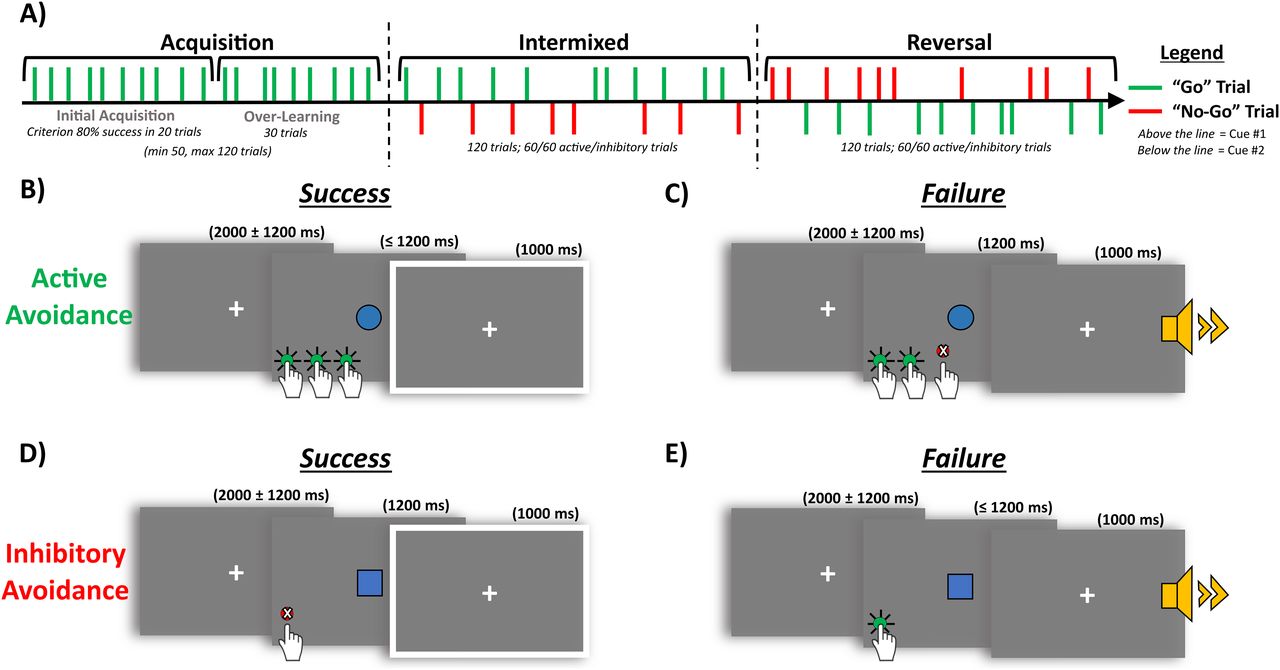5
Depression Levels Are Associated with Reduced Capacity to Learn to Actively Avoid Aversive Events in Young Adults
www.eneuro.orgDepression and anxiety are often characterized by altered reward-seeking and avoidance, respectively. Yet less is known about the relationship between depressive symptoms and specific avoidance behaviors. To address this gap, we conducted two studies. In Study 1, undergraduates and online workers completed an uninstructed go/no-go avoidance task ( N Total = 465) as a reverse translation of a rodent paradigm. Participants exhibited a wide range of symptom scores on the Beck Depression Inventory-II (BDI-II), ranging from low to severe. In Study 1, cues were used to signal the response type (go/active vs no-go/inhibitory) required to avoid an aversive sound. Higher depressive scores were associated with poorer acquisition of active avoidance in undergraduates. Overall participants showed lower accuracy for active than inhibitory avoidance. To examine whether the better no-go trial performance reflected a prepotent response to avoid aversive outcomes, in Study 2, undergraduates ( N Total = 330) completed a version of the task that included reward-seeking. Here all participants showed higher accuracy for active reward-seeking and inhibitory avoidance, consistent with a prepotent response to inhibit action to avoid aversive consequences. These findings suggest that in young adults, depressive symptoms are associated with difficulty in overriding prepotent responses to actively avoid aversive outcomes in the absence of reward. This work bridges the gap between preclinical animal models and clinical research, offering insights that could guide the development of more targeted clinical interventions.
You must log in or register to comment.

